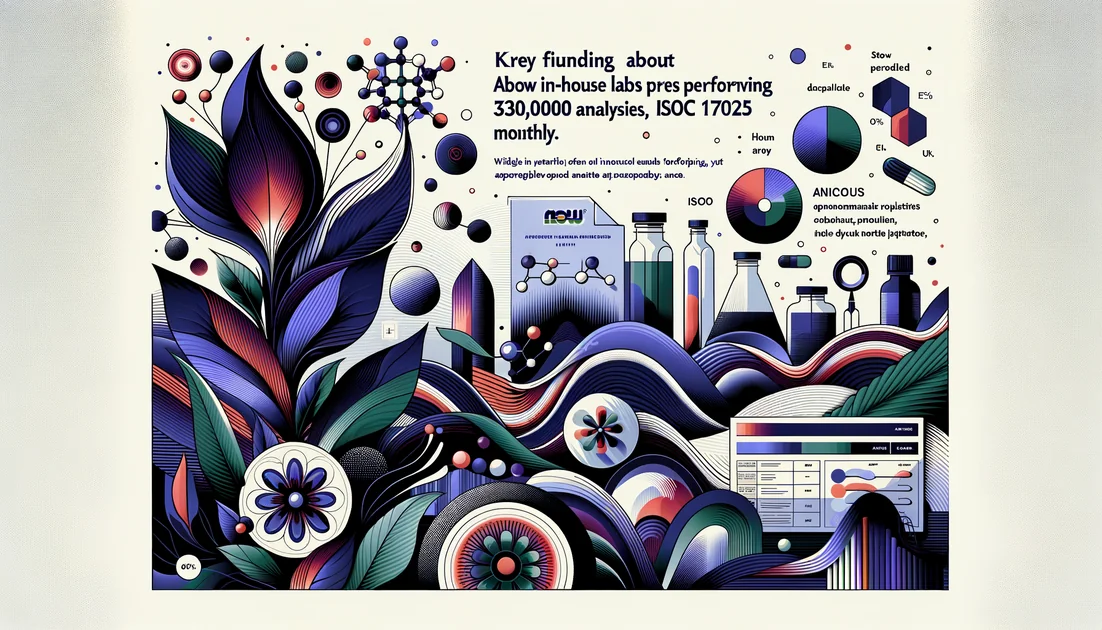
The Fruit of Life—and the MRI: How Pomegranate's Ancient Symbolism Meets Modern Science
In myth, the pomegranate was both a promise of life and a passport to the underworld. In clinics today, it's turning up in blood-pressure cuffs, dialysis units, and even neonatal MRI suites. How did a ceremonial fruit become a biomedical probe?
- Evidence
- Promising
- Immediate Effect
- No → 4-12 weeks
- Wears Off
- Benefits diminish within ~8-12 weeks after stopping, per hemodialysis trial
From altar to artery
Open a pomegranate and you meet a small universe: hundreds of jewel-toned seeds, each its own story. Across Persia, India, Greece, and the Levant, that crowded interior stood for abundance, fertility, even immortality. Healers used the rind, flowers, and seeds for ailments from gut troubles to parasites; poets used it to describe the sacred. The fruit's dual reputation—life-giving in some traditions, funereal in others—makes a fitting prelude to its modern role: nudging biology away from slow decay and toward repair. [1]
The heart hears first
Cardiovascular researchers were among the earliest to test the old stories. In randomized trials and meta-analyses, pomegranate consumption consistently nudged blood pressure down—modestly, but meaningfully. A 2016 meta-analysis of eight RCTs found average drops of about 5 mmHg systolic and 2 mmHg diastolic. A larger 2024 review of 22 RCTs reported even bigger pooled reductions (about −8/−3 mmHg), with people starting above 130 mmHg seeing the most benefit. One 2023 analysis suggested that up to roughly a cup a day (≤300 mL) worked best, with benefits fading when people stopped. [3][4][5] If "oxidized cholesterol" sounds abstract, think of it as rust forming on blood fats; that rust helps plaque stick. Israeli lipid scientist Michael Aviram's team has spent decades asking whether certain plant compounds can keep that rust at bay. "The pomegranate fruit addresses both the levels of cholesterol and its oxidation rate," he explains, pointing to its mix of plant sterols and powerful antioxidants like punicalagin. [14] Not every headline pans out, and that's part of the story. In a rigorous 18-month trial tracking artery-wall thickness—a slow-moving marker—pomegranate juice didn't change the average progression compared with placebo, though people with the worst oxidative-stress profiles seemed to benefit. Earlier open-label work in patients with significant carotid narrowing did show striking improvements over years, but without randomization those findings are best read as hypothesis-generating. Science moves forward by keeping both results in view. [10][11]
Memory, measured in minutes and MRI pixels
You're at your desk, and midway through the afternoon a word slips away. At UCLA, researchers once handed volunteers either 8 ounces of pomegranate juice or a taste-matched placebo for four weeks, then slid them into an fMRI scanner. The juice group not only recalled more words on a sensitive verbal memory test; their brains lit up more during memory tasks, and their blood showed rise of urolithin A—metabolites made when gut microbes "carve" pomegranate's big polyphenols into smaller, absorbable pieces. [6] Over 12 months, the picture grew subtler: in a larger trial, daily juice seemed to stabilize one aspect of visual learning while the placebo group declined, but most other memory measures didn't separate. The arc points to something real but modest—consistent with nutrition rather than medication. [7]
A seed in the womb
The most surprising chapter comes from obstetrics. In pregnancies where the placenta underperforms and babies grow too slowly (IUGR), Brigham and Women's Hospital ran randomized, double-blind trials in which mothers drank 8 ounces of pomegranate juice daily until delivery. Babies exposed in utero showed signs—on sophisticated MRI—of stronger white-matter "cabling" and more synchronized brain network activity, with follow-up analysis suggesting a lower risk of certain brain injuries. "Our study provides preliminary evidence suggesting potential protective effects for newborns exposed to pomegranate juice while in utero," says neonatologist Terrie Inder, who emphasizes that larger trials are underway. [16][17][6]
The hidden craftsmen: your microbes
Here's the twist that ties ancient ritual to cutting-edge biology: pomegranate's marquee molecules are too bulky to slip into your bloodstream as-is. Your gut bacteria act like master carpenters, shaving them down into urolithins that circulate widely—and in lab models, even cross the brain's security gate. Nutritional chemist Navindra Seeram puts it plainly: "We're not all responders.. You have to have that gut microbe" to make these metabolites. [6][15] The urolithin story has grown beyond pomegranate per se. Purified urolithin A—essentially delivering the finished product—has improved muscle strength by about 12% in older adults over four months and shifted biomarkers toward better mitochondrial "recycling," the cell's way of retiring worn-out power plants. That doesn't prove pomegranate juice does the same, but it strengthens the plausibility that its benefits depend on this microbial relay. [18]
Real patients, real-world edges
Nutrition research often stalls in healthy volunteers. Not here. In a year-long, double-blind trial among hemodialysis patients—people living with extraordinary oxidative stress—those who drank pomegranate juice three times a week dialed down biological markers of "rust," inflammation, and even required fewer hospitalizations for infections. The catch: three months after stopping, the benefits melted away. Pomegranate, it seems, is a nudge, not a cure; it works while you use it. [8] Cancer headlines? Early open-label work suggested pomegranate extracts might slow the "doubling time" of PSA in men with recurrent prostate cancer, but a rigorous placebo-controlled trial in advanced disease failed to budge PSA over eight weeks. Where evidence conflicts, the honest position is curiosity without claims. [12][13]
How to make the most of it
Dose and duration: Trials most often used about 8 oz (240 mL) daily for 4–12 weeks; blood-pressure benefits can appear within a month. Effects fade if you stop. [3][4][5][8]
Juice quality: Many of the antioxidant workhorses live in the peel. Commercial juices pressed from whole fruit contain more punicalagin and show higher antioxidant activity than aril-only juices. Look for 100% pomegranate with no added sugar. [9]
Who seems to benefit most: Adults with elevated systolic pressure (>130 mmHg), people with higher oxidative stress, and those with mild memory complaints in short trials. [4][6][10]
Microbiome matters: Not everyone produces urolithins; consistent intake and overall plant-rich diets may help your "carpenters" show up. [6][15]
Practical pairings: A small glass with meals (for glycemic moderation) or diluted with sparkling water preserves dose while cutting sugar load.
Cautions: If your blood pressure runs low or you're on multiple antihypertensives, monitor values with your clinician; dialysis patients must fit juice into potassium allowances even though trials have used it successfully during sessions. [8]
What the fruit teaches
The pomegranate's paradox—life and death in one shell—turns out to be a biology lesson. It doesn't overwrite our fate; it coaxes the body's own systems—vessel tone, immune rust control, even neural wiring—to lean toward resilience. The ritual remains, only now the altar is a breakfast table, and the blessing is measured in millimeters of mercury and the quiet of a word you thought you'd misplaced.
Key takeaways
- •Trials and meta-analyses show pomegranate can lower blood pressure by about 5–8/2–3 mmHg on average, with larger effects when baseline systolic BP exceeds 130 mmHg.
- •Short-term juice intake has been linked to improved verbal memory and increased task-related brain activity, alongside rises in the metabolite urolithin A.
- •In hemodialysis patients, year-long juice intake reduced oxidative and inflammatory markers and infection-related hospitalizations, with benefits reversing after stopping.
- •Most studies used around 8 oz (240 mL) of 100% pomegranate juice daily; some dialysis protocols used three servings per week.
- •To moderate sugar while keeping polyphenols, take juice with meals or dilute with sparkling water.
- •Best suited for adults with elevated systolic BP, high oxidative stress (e.g., CKD), or mild memory complaints; monitor if blood pressure runs low or on multiple antihypertensives, and dialysis patients should coordinate with care teams due to potassium management.
You might also like
Explore more of our evidence-led investigations, comparisons, and guides across every article style.

NOW Foods (NOW Health Group)
NOW Foods: The Testing Standard at Value Prices—With a Transparency Blind Spot

Creatine Monohydrate (CM) vs Creatine Hydrochloride (Cr-HCl)
For most people, choose Creatine Monohydrate for proven results, simple dosing, and best value. Consider Creatine HCL only if you consistently get GI upset from CM and are willing to pay more; it hasn't shown better outcomes in trials. [1][2][4][5]


Vitamin K2
You load up on calcium for strong bones—then your heart scan shows calcium where it doesn't belong. What if a quiet vitamin acts like a traffic cop, waving calcium into bone and away from arteries?

Memory Stack With Real Clinical Data
Dual-core, theoretical synergy: both work on their own; together looks additive with plausible complementarity, but no direct human A+B head-to-head proof yet.

Tocotrienols
The stealthier cousins of vitamin E—built with springy tails that move differently in cell membranes and behave differently in your body.


